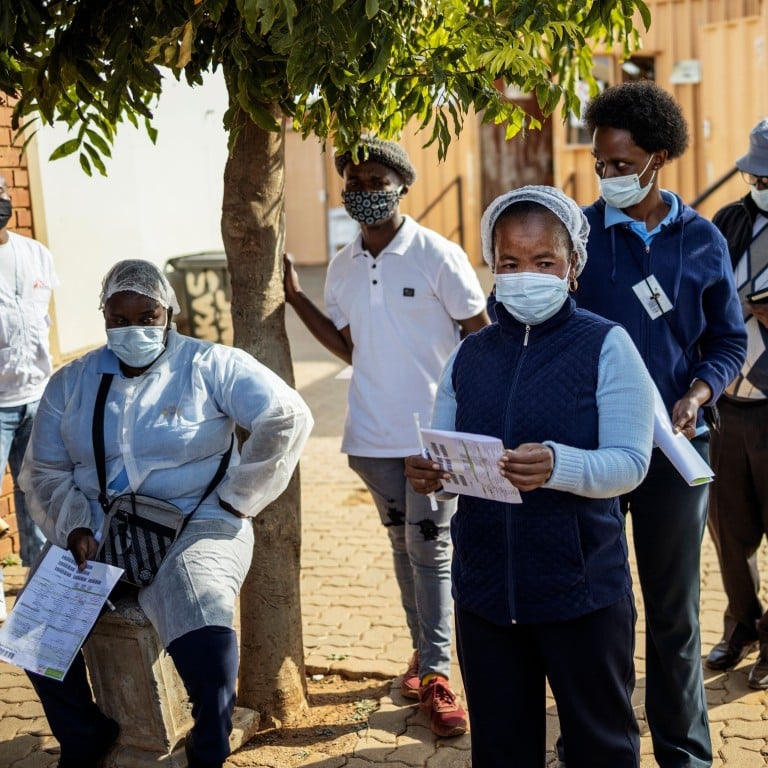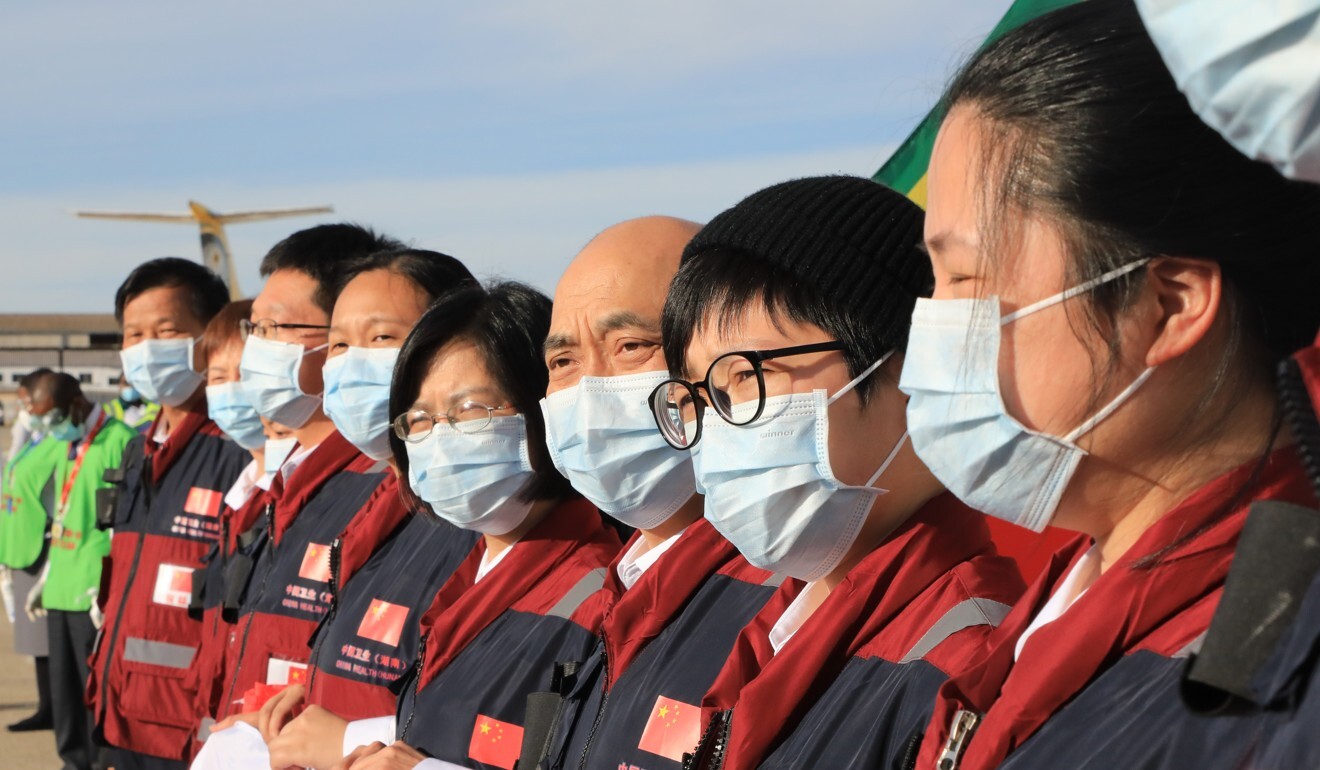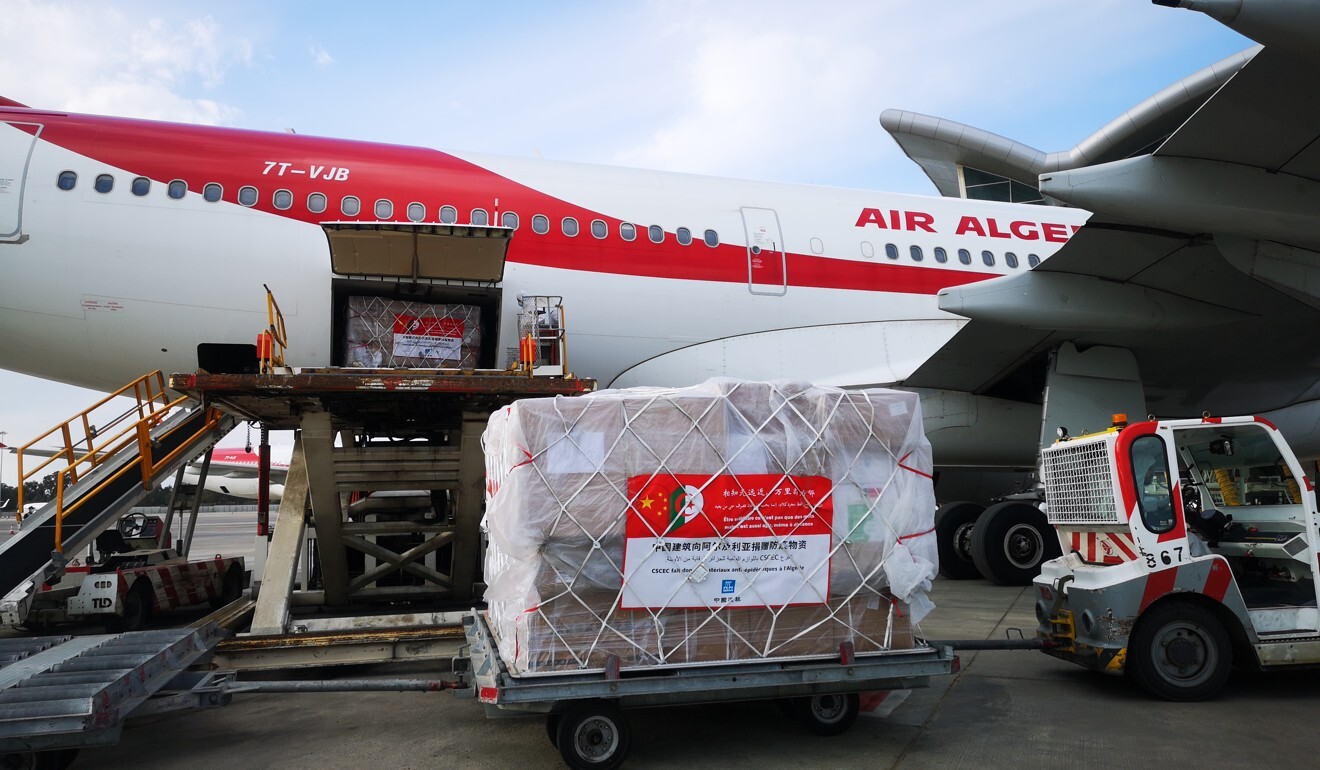
Coronavirus: China’s aid effort in Africa is nothing new, observers say
- Beijing ‘is serious about its commitment to stand by its African partners’ and has been since 1962, academic says
- But not all of its medical teams are welcomed with open arms, especially since allegations emerged of Africans in southern China being mistreated
But while some critics have accused Beijing of trying to shift the global focus away from its missteps in handling the initial coronavirus outbreak, observers say the humanitarian aid effort is actually just an extension of the medical diplomacy China has been conducting in Africa for decades.
Three days earlier, a team of 12 Chinese experts from Hunan province arrived in the Zimbabwean capital Harare, where they will share their experiences and knowledge with local health professionals on case identification, reporting, isolation, diagnosis and treatment, according to the Chinese embassy in the city.

Lina Benabdallah, an assistant professor of politics specialising in Sino-African relations at Wake Forest University in North Carolina, said Covid-19 had provided an opportunity for Beijing to show it was “not only a goods provider but also an expert on pandemic management and global health”.
Beijing had been sending medical teams to Africa for almost 60 years and was part of its soft power push to solidify China-Africa relations, she said.
According to official figures, there are currently about 1,000 Chinese medical professionals working in Africa on a long-term basis, most of them sent by individual provinces. The programme costs China an estimated US$60 million per year, or more than US$1 billion between 2000 and 2018, according to a recent report by Johns Hopkins University’s School of Advanced International Studies.
Benabdallah said that one of the first examples of China’s medical diplomacy was when it sent a medical team to Algeria after it gained its independence in 1962. At that time, the country was in dire need of experts to train its doctors and nurses, and relied heavily on support from both China and Russia.
“For China to be sending medical teams to Algeria now, in the face of Covid-19, symbolises the continuity and solidarity of the cooperation between China and Algeria,” she said.
“But it also shows that Beijing is serious about its commitment to stand by its African partners.”
As a result, many Nigerians, including politicians and health care professionals were reluctant to welcome a team of Chinese medical experts, with the nation’s doctors’ association actively opposing it, Benabdallah said.
The response to Chinese aid “is not homogeneous across the continent”, she said.
Also, while governments were generally appreciative of Beijing’s support, ordinary people were less impressed as they regarded China not only as the source of Covid-19 but also where their countrymen – in Guangzhou at least – were facing discrimination, she said.

David Shinn, a former US ambassador to Ethiopia and Burkina Faso, and adjunct professor at George Washington University’s Elliott School of International Affairs, agreed.
“Sending teams to deal specifically with Covid-19 is somewhat more delicate in that Africans understand the virus originated in China,” he said.
“The timing is also unfortunate because it comes in the aftermath of the negative publicity about Guangzhou. Nevertheless, the teams should help to improve China’s image, especially if they successfully treat African Covid-19 patients.”
A recent study conducted by the Clinton Health Access Initiative and published by the China Africa Research Initiative at Johns Hopkins University’s School of Advanced International Studies, said that medical teams were the “cornerstone of Chinese health aid in Africa” and had been deployed in over 50 countries on the continent.
However, the study, titled “Chinese Medical Teams: Knowledge Transfer in Ethiopia and Malawi”, said that the “effectiveness of the programme as a vehicle for knowledge transfer remains limited, despite its emphasis in official Chinese medical team programme documentation and messaging”.
“The Chinese medical team’s programme in Malawi, and to a smaller extent in Ethiopia, suggests that diplomacy, and not capacity building, is the core objective of the programme,” it said.

